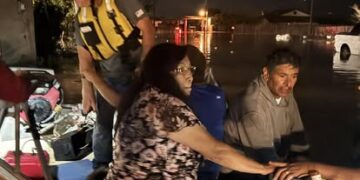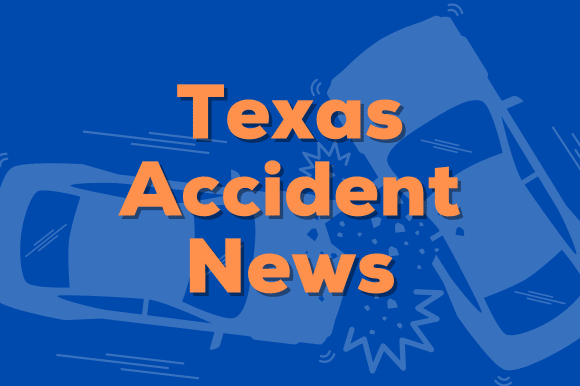Contractors move equipment as part of a 2021 study of removing per- and polyfluoroalkyl (PFAS) from the aquifer under Cannon Air Force base, near Clovis, New Mexico. (Courtesy U.S. Air Force Staff Sgt. Maxwell Daigle)
New Mexico state officials have asked a state court to order Cannon Air Force to allow inspectors to test for toxic substances, after Cannon officials on July 15 prohibited them from doing so.
Inspectors had sought to sample for per-and-polyfluoroalkyl substances — a class of toxic chemicals that have contaminated multiple groundwater sites in the state. While health effects are still being studied, PFAS exposure has been linked to increased cancer rates, decreased fertility and immune system damage.
In December 2018, New Mexico regulators issued a permit to Cannon Air Force Base in December 2018, requiring cleanup of PFAS contamination of the air, soil, surface water and groundwater stemming from decades of use of PFAS-laded firefighting foams. The following year, the U.S. Department of Defense filed suit and alleged New Mexico’s efforts to mandate cleanup of PFAS contamination in the Ogalla Aquifer overstepped the state’s authority on hazardous waste.
PFAS contamination from Cannon infiltrated nearby dairy cows in Clovis, resulting in the euthanasia and disposal of more than 3,000 cows in October 2022. Recent studies found the plants and animals at Holloman Lake outside of Alamogordo contain the highest levels of measured PFAS in the world.
New Mexico Attorney General Raúl Torrez and the New Mexico Environment Department submitted a motion to a Santa Fe judge Wednesday arguing for immediate access to the base and an order requiring air force officials to follow terms of the hazardous waste permit. The motion was an update to the new lawsuit filed against Cannon Air Force Base in June.
Cannon officials, however, said in a July 18 statement that the denial was prompted by the ongoing federal litigation.
“While NMED sought to collect samples for per- and polyfluoroalkyl substances (PFAS), the Air Force could not authorize PFAS sampling due to ongoing litigation over NMED’s authority to regulate PFAS as a hazardous waste,” the statement read. “However, Cannon did offer sampling opportunities for hazardous waste covered by its permit.”
When reached for further comment, Major. Jaclyn Pienkowski, a spokesperson for Cannon Air Force Base referred Source NM back to the July 18 statement.
State officials said the denial violated the permit and state laws, including a measure lawmakers passed in the 2025 session. House Bill 140 expanded the state’s authority to require the cleanup of firefighting foams containing PFAS at military bases in New Mexico.
Pair of PFAS bills clears final committee, heads to Senate floor
“Denying access to state inspectors to sample for toxic PFAS contamination while claiming to value relationships and embrace transparency is downright insulting to New Mexicans,” Environment Secretary James Kenney said in a statement. “For years, the U.S. Air Force’s promises have contradicted their harmful actions towards communities and regulators — a tired pattern from Washington bureaucrats with no connection to our families, land, or water.”
This post was originally authored and published by Danielle Prokop from via RSS Feed. to get your news feed on Nationwide Report®.





















![Deadly Crash on Westbound Interstate 90 Claims a Life [Kittitas County, WA]](https://www.nationwidereport.com/wp-content/uploads/2025/07/SUV_Freeway-1024x683-1-120x86.jpg)
![Violent Bicycle Accident on Central Avenue Kills 1 [Albuquerque, NM]](https://www.nationwidereport.com/wp-content/uploads/2025/07/bike_shadow-1024x759-1-120x86.jpg)

